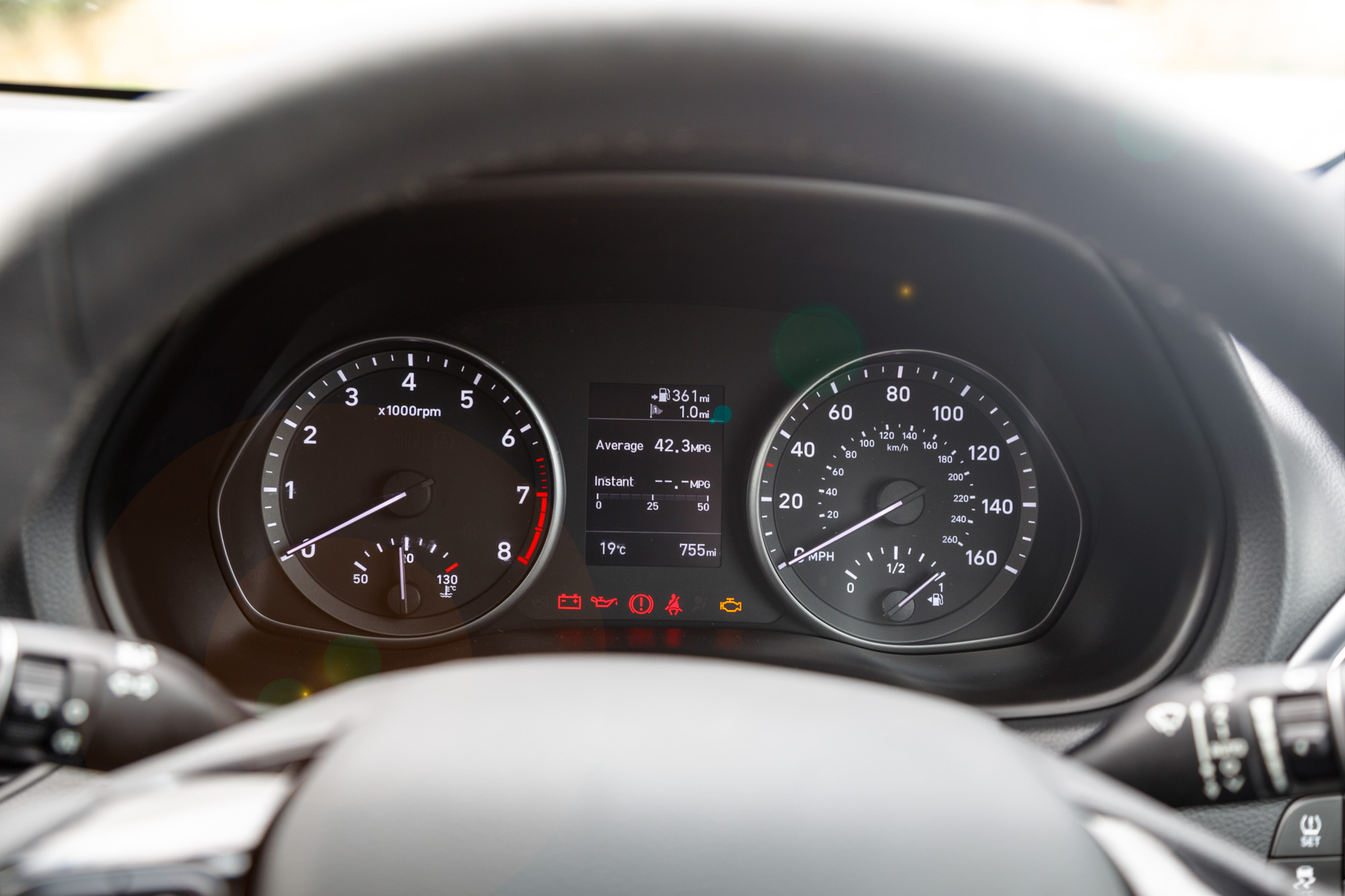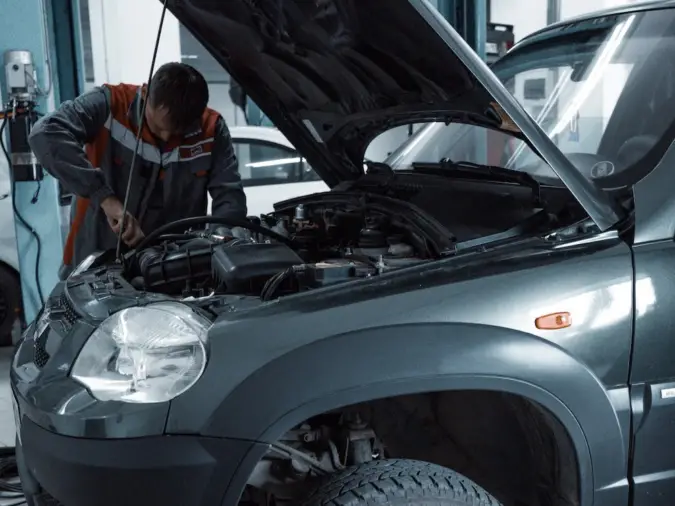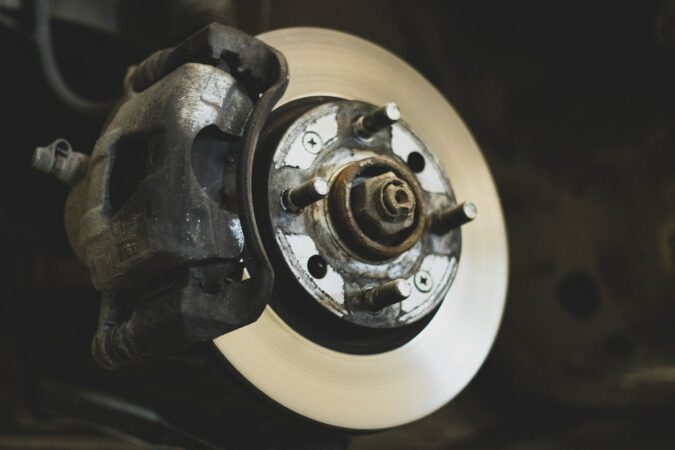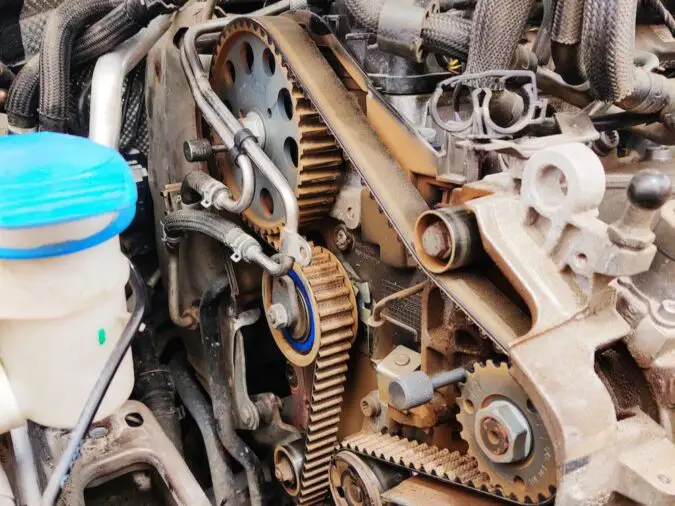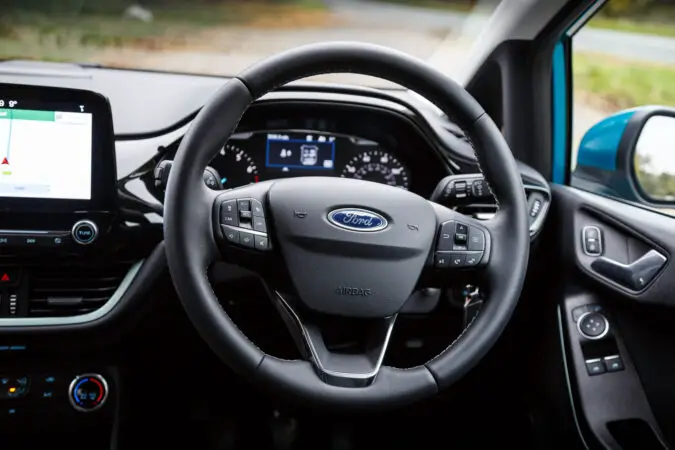Have you ever noticed your car excessively shaking when coming to a stop, and found yourself wondering “why is my car shaking when I stop?”. Well, you are not alone. Many drivers have wondered about this at some point, and today we will tell you the exact cause of it.
In addition to shaking while coming to a stop, cars can shake abnormally during other scenarios as well. Shaking can happen when driving at high speeds, at low speeds while idling, and even when reversing. As you might have guessed, each of these problems has its own specific causes.
In this article, we’ll tell you all about these causes, as well as the ways to fix and avoid these issues in the future. Additionally, we will take a look at some of the symptoms that will help you identify these problems before they get severe as well. With that out of the way, let’s get started.
Car Shaking While Driving
We expect a smooth and comfortable ride when we are driving our vehicles down the road. But if it starts to shake while driving, it is understandable that it raises a few red flags in your head. As we are looking for answers to the question “why is my car shaking when I stop,” we thought it might be important to understand what causes cars to shake while driving as well.
When you notice the car shaking while driving, you should pay attention to the following factors. These will help you diagnose the probable source of the problem, while simultaneously making the repair process much simpler.
- Does the shaking only happen at certain speeds? If yes, what speeds are they?
- Does the vibration increase with the speed?
- Where is the vibration concentrated?
- Do you hear any noises along with the shaking?
This information would be valuable to the mechanics who undertake the process of fixing your car. Based on the observations, you can narrow down the cause to a few areas. Some possible reasons that result in a car shaking while driving include,
- Engine Issues
- Faulty Timing Belt
- Driveshaft Problems
- Problems With The Wheels And Tires
- Bent Rims
- Suspension Problems
- Axle Issues
- Wobbly Steering Wheel
- Disconnected Hoses
- Fuel Intake Problems
1. Engine Issues
If you hear a noise along with the vibrations, the issue might be related to the engine and transmission. The first areas that deserve your attention are the engine and transmission mounts. Broken mounts will move around when the vehicle is driving down the road, leading to vibrations and shaking.
A broken radiator fan can also cause a car to vibrate while driving. You see, when the radiator fan gets damaged, it will be out of balance.
An out-of-balance fan causes a noticeable vibration, which the driver will feel as shaking. If the shaking is not constant and only happens when the engine gets warm, the radiator fan is the part to blame.
The spark plugs and the air filter are other engine components that can cause a car to shake while driving. Although spark plugs are made to last between 80,000 to 100,000 miles, loose connections can cause the engine to misfire and shake while driving. Similarly, a clogged air filter can limit the airflow to the engine resulting in shaking as well.
2. Faulty Timing Belt
The timing belt is an essential component of a car’s engine. It is responsible for synchronizing the actions of several key accessories, and when it gets worn out, stretched, or torn, the resulting inconsistent timing can cause the engine to shake.
Shaking due to faulty timing belts is an issue mostly found in vehicles with high mileage. If you notice any cracks, damage, or looseness of the timing belts, the best course of action is to replace them as soon as possible.
3. Driveshaft Problems
The driveshaft is responsible for distributing power from the engine to either the front wheels of a front-wheel drive vehicle or the rear wheels of a rear-wheel drive one. Sometimes, the driveshaft can get bent due to a manufacturing defect or accident damage. When this happens, it can result in the vehicle severely shaking while being driven on the road.
4. Problems With The Wheels And Tires
Wheel and tire issues are the most common causes of car vibration and shaking problems. The wheel and tire assembly consist of many moving parts, and an issue in any of these parts is enough to make your car shake while being driven.
Some common tire problems that can result in the car shaking while driving includes uneven wear, tire tread separation, damage to the wheels, improper balance, and loose lug nuts. Each of these problems comes with its own unique symptoms.
For example, if the vehicle only shakes at certain speeds, it might possibly be caused by out-of-balance tires. On most occasions, balancing the tires or performing a tire rotation will get rid of the shaking issues.
However, there may be times when the whole tire would have to be replaced in order to fix the problem.
Regularly inspecting the tires is the best way to avoid tire-related car shaking problems in the first place. We recommend performing a visual inspection of the tires along with checking the tire pressure and tightening the lug nuts once in a while.
Additionally, tire rotations and wheel alignments should be carried out at scheduled intervals. Moreover, it is important to maintain the tire pressures at the levels recommended by the vehicle’s manufacturer. Usually, you can find the tire pressure levels printed on the owner’s manual of the car.
5. Bent Rims
A small mistake like hitting a curb or driving over a pothole too fast can damage the rims of your vehicle and bend them out of shape. If this happens, the rims will shake and vibrate when you are driving, gradually increasing in intensity the faster you go. Bent rims can also damage the tires by affecting the tire pressure, so it is important to get the issue sorted out as soon as possible.
6. Suspension Problems
Issues with the suspension system can also end up causing your vehicle to shake while driving. Common areas of the suspension system that are prone to failure are the ball joins and tie-end rods.
When these parts fail, it makes it impossible for the vehicle to be aligned properly. If you suspect that suspension issues are what’s causing your vehicle to shake while driving down the road, take your vehicle to a mechanic and have them inspect the ball joints and other accompanying components.
7. Axle Issues
Faults in either the front or the rear axles can cause your car to vibrate when you are driving it. The axles connect the front and rear wheels to the vehicle, and they can get easily damaged if you get into an accident. If the damages aren’t fixed properly and the axle remains bent or dented, the vibrations and shaking can creep up.
In addition to the axles, worn CV joints can also cause your car to shake. When the joints are worn, dust and road debris can get inside them and cause major damage, resulting in the vibrations you feel inside the passenger compartment.
8. Wobbly Steering Wheel
A wobbly steering wheel will cause the car to shake, no matter what speed you driving. The wobbling is the result of the steering wheel not spinning properly. Additionally, damage to the tie rod ends, ball joints, or bearings can also cause the car to shake while driving. We will take a closer look at steering-wheel-related issues in an oncoming chapter.
9. Disconnected Hoses
There are dozens of hoses in a car, taking care of various functions. Sometimes, a broken, disconnected, or loosely connected hose will result in engine shaking. Moreover, faulty air/vacuum hoses can cause serious reliability issues, so it is important to get them reattached or replaced as soon as possible.
10. Fuel Intake Problems
The final reason for a car shaking while driving we will be taking a look at today is fuel intake problems. As your vehicle gets older and you rack up more miles, it is common for the fuel intake system to get clogged up.
When this happens, the resulting blockage causes uneven quantities of fuel to be delivered to the engine. As a result, the power will surge up and down, resulting in shaking.
Steering Wheel Shaking While Driving
Next up, let’s take a look at the possible reasons which may cause the steering wheel of your vehicle to shake while driving. This is another common question people have on top of “why is my car shaking when I stop.” If your steering wheel is also shaking while driving, here is a list of the possible causes.
- Warped Brake Rotors
- Brake Calipers Sticking
- Car Wheel Bearing Issues
1. Warped Brake Rotors
If the steering wheel starts to shake only when you apply the brakes, it is a sign of warped brake rotors. The brake rotors have a flat and smooth surface that comes into contact with the brake pads, which generates friction and slows the vehicle down.
This friction generates massive amounts of heat. As the rotors are made from metal, this heat warps their shape over time. Not replacing the brake pads at the correct time will make the warping process even faster.
When brake pads come into contact with warped brake rotors when braking, the uneven surface area causes the steering wheel to shake. If you identify this issue before it gets severe, your mechanic might be able to resurface the brake pads to give them an even surface. However, if the steering wheel shaking has already set in, the only viable option is to replace the rotors with all-new ones.
2. Brake Calipers Sticking
Another brake-related issue that may cause the steering wheel to shake is sticky calipers. Although uncommon, sometimes the brake calipers can become seized, preventing the, from lowering the brake pads as intended.
The buildup of debris, incorrect installation, and worn hoses can all result in sticky calipers. When the calipers become sticky, the brake pads continue to brush against the rotor even if you take your foot off the pedal. In addition to making the steering wheel shake, sticky brake calipers cause handling issues, reduce the fuel economy, wear out tires faster and also damage the engine.
3. Wheel Bearing Issues
The main purpose of the wheel bearings is to connect the wheels to the axles. Sometimes, the bearings can go bad and cause the steering wheel to shake when you are driving down the road. If you suspect that the wheel bearings are to blame for the steering wheel shaking, you should take your vehicle to the local mechanic to get the bearings replaced.
Rough Idle Causes
Similar to the previous issues we discussed, there are several problems that may cause a car to shake when it has come to a stop. If you were wondering “why is my car shaking when I stop?” and also experiencing rough idling, here are some possible causes.
- Spark Plug Issues
- Loose Vacuum Hose
- Worn Belts
- Dirty Fuel Injectors
- Clogged Air Filter
- Mass Airflow Sensor Faults
Now, let’s take a deeper dive into each of these issues. This information will help you to avoid these problems from arising in your vehicle.
Why Is My Car Shaking When I Stop #1 – Spark Plug Issues
If a check engine light has popped up on your dashboard and the car is shaking when you come to a stop, 90% of the time the issue might be related to a faulty spark plug (which you can diagnose by learning how to test a spark plug). As time passes, carbon and dirt deposits can build up on the spark plugs, blocking them from igniting the fuel as intended. This results in misfires, leading to the shaking that you experience.
Oftentimes, simply giving the spark plugs a good cleaning gets rid of the carbon deposits and restores things back to normal. However, if you decide to replace the spark plugs, make sure that you are getting the ones that fit the specific make and model of your vehicle.
You can easily find this information by referring to the owner’s manual. Once they are replaced, you can expect the spark plugs to serve you reliably for up to 100,000 miles.
Why Is My Car Shaking When I Stop #2 – Loose Vacuum Hose
Vacuum hoses power some key components of an engine. So, when they don’t function as intended, the engine performance may be reduced, leading to rough idling and shaking. These hoses can sometimes simply pop off as you are driving, and can even cause a vehicle to stall out.
Similarly, a crack in one of the hoses can also cause the same problems. Here, the shaking might be less severe and harder to notice. If you suspect the vacuum hoses to have air leaks, here is a simple trick you can use to pinpoint them.
With the engine running, take some soapy water and spray it along the hose. If there are any cracks or leaks, the soapy water will temporarily seal the leaks. You can notice this by the change in the engine’s idling speed.
W recommend you check all the hose connections once in a while to make sure that they are properly attached. If you notice a hose that is too loose, it is a good idea to replace it to prevent future headaches.
Why Is My Car Shaking When I Stop #3 – Worn Belts
Every engine comes with a serpentine belt that is responsible for powering the air conditioning system, alternator, and power steering pump, among others. Over time, this belt wears out, resulting in the car shaking when you come to a stop.
Luckily, inspecting or replacing the serpentine belt is not that difficult. Simply open the hood, and look for the largest rubber belt under there. That is the serpentine belt. Give it a slight tug to see if it is too loose. You should also inspect the whole length of the belt for any cracks or damage. If you spot any, replace the belt with a brand-new one to avoid shaking.
Why Is My Car Shaking When I Stop #4 – Dirty Fuel Injectors
Similar to the fuel intake, dirty fuel injectors can also end up causing your engine to misfire. As we have already learned, engine misfires are a leading cause of rough idling and shaking when coming to a stop.
Usually, dirty or faulty fuel injectors will cause the check engine light to turn on. In addition to the fuel injectors, you should also inspect other key components of the fuel system like the intake, fuel pump, and fuel filter for any potential faults if you are experiencing shaking or rough idling.
Why Is My Car Shaking When I Stop #5 – Clogged Air Filter
Air is essential for an engine to properly carry out the combustion process. So, when the airflow gets impeded, it results in misfires and rough idling. Typically, replacing the air filter will get rid of this issue.
To check whether the air filter needs to be replaced, take it out and check whether it is dirty. If so, replace it with it a new one, and you are good to go!
Why Is My Car Shaking When I Stop #6 – Mass Airflow Sensor Faults
The Mass Airflow Sensor (MAF) calculates the air-fuel ratio that goes into your engine. A fault in this sensor can send wrong information to the ECU, leading to incorrect amounts of fuel being injected into the engine.
Shaking and rough idling are two of the most common symptoms of an engine that is not getting enough fuel. Mass Airflow Sensor failures result in a check engine light, and you can confirm the source by reading the error code using an OBD 2 reader.
Steering Wheel Shakes At High Speeds
The steering wheel shaking at high speeds or when accelerating is a scary experience for any driver. On most occasions, loose engine mounts are the cause of this. When a car speeds up, the engine has to work harder, resulting in vibrations.
A damaged motor mount cannot efficiently absorb these vibrations, resulting in the steering wheel or sometimes the whole car shaking under load. Additionally, misalignments in the suspension system or steering mechanism will also result in shaking at high speeds and under acceleration.
Conclusion For Why Is My Car Shaking When I Stop
No matter whether your car is shaking when stopped, at high speeds, or under braking, it is an issue that needs to be fixed immediately. Depending on the cause, getting rid of the shaking can be as simple as replacing the air filter, or can be a much more challenging task like putting in all-new motor mounts.
Driving your car while it is shaking is a danger to you and your vehicle. Over time, the damage will get severe, and the risk of it causing an accident grows higher as well. So, taking the vehicle to an authorized mechanic as soon as possible to get the problem sorted out is your best course of action.
FAQs On Why Is My Car Shaking When I Stop
Why Does My Car Shake When I Brake
There are several reasons why a car might shake when you brake. Sticky calipers and warped brake rotors are the top two causes that may cause your car to shake when you apply the brakes.
Why Is My Car Shaking
Bad motor mounts, engine misfires, and tire misalignments can all result in your car shaking. The best way to identify the exact cause is by getting your vehicle inspected by a mechanic.
Why Does My Steering Wheel Shake
An unbalanced tire may cause your steering wheel to shake as you are driving down the road. The best way to avoid this issue is by balancing the tire every 10,000 – 12,000 miles. Other reasons for steering wheel shake include suspension issues, warped rotors, and worn-out bearings.
Why Does My Car Shake When I Accelerate
The main reason that makes a car shake under acceleration is damaged engine mounts. Additionally, a misaligned suspension system will also result in shaking and vibrations as you accelerate down the road.
Why Is My Car Shaking When I Drive
Shaking indicates that there is a major issue in one or more mechanical components of your vehicle. The list of possible culprits includes the tires, engine mounts, fuel system, and brakes.

